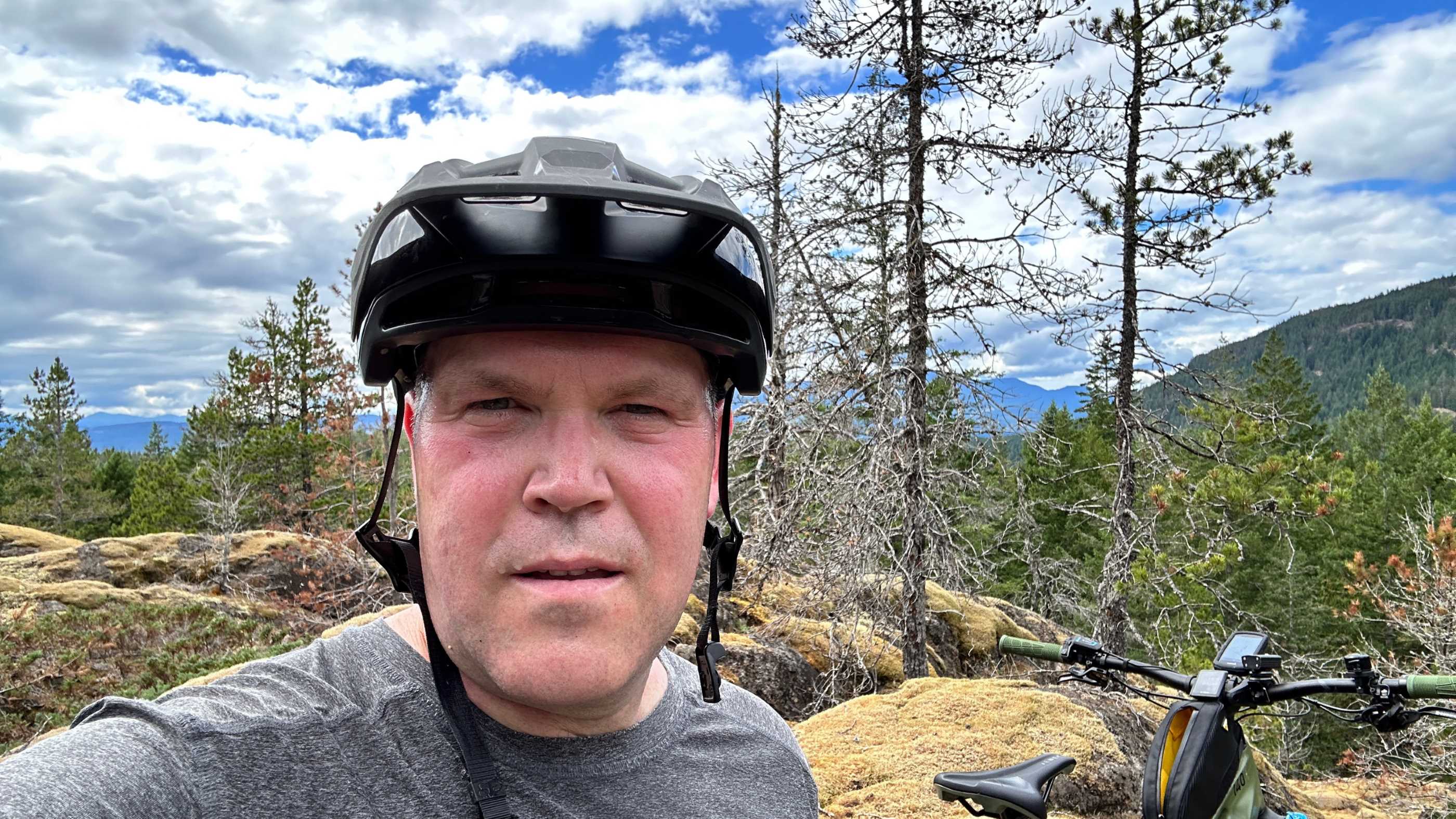Simon Otto, an associate professor in the School of Public Health, cycles year-round, a practice that helps him create mental space to understand the impacts of infection-causing bacteria that no longer respond to antibiotic drugs.
In this week’s spotlight, Simon reflects on not only resistance to antibiotics, but people’s resistance to changing how they view and use antibiotics and how he approaches this challenge.
How do you describe your work to people who don’t work in your field?
I study antimicrobial resistance, researching the impacts of infection-causing bacteria that no longer respond to the antibiotic drugs that we use to treat them. I am interested in antimicrobial resistance from a One Health perspective — how these resistant bacteria move between humans, animals and their environments, and how these things are all interconnected from a control perspective.
What’s one big problem you want to solve through your work?
How do we motivate people to change and to promote and practice antimicrobial stewardship across One Health sectors? Antimicrobial stewardship = using the right drug in the right way in the right patient at the right time.
What does the word “innovation” mean to you?
Innovation to me aligns strongly with antimicrobial stewardship. Stewardship is about always asking ourselves - can we do better than what we are doing now? Can we use antibiotics in a better way to prevent resistance? Innovation is similar in that we are always questioning ourselves to find a better way to do things. This goes beyond developing the next new technology or gadget. It is also about how we work, think, plan and act.
What’s been your biggest a-ha moment — in life or work — so far?
People often resist changes that challenge their values. Providing data and scientific evidence is not enough to motivate this change. I love a quote I heard recently: “Never bring statistics to a story battle” (Dr. Peter Dodds, University of Virginia). Through the Covid-19 pandemic and my work in the antimicrobial stewardship arena, I have learned that we need to use social science approaches along with traditional science and surveillance research to develop policies that will result in actual change in human behaviour to promote stewardship to address antimicrobial resistance.
How do you or your team come up with your best ideas?
I have learned three things about myself that foster my creative and innovative thinking. First, I ride my bike year round. My commutes to and from campus help me to clear my mind and create this brain space. Protecting time for this active lifestyle supports my mental health and well-being so that I have the intellectual capacity for innovative thinking. Second, I need to schedule dedicated time to think about my research and innovation where I turn off all of the other communication avenues. Third, I empower my team to find independent and creative solutions to the challenges that we face in our research and work. They are an amazing group to work with and I consider myself privileged to be able to do so!
What’s your favourite thing about working at the U of A?
Working with my amazing team!
In Shape: The University Strategic Plan 2023-2033, the University of Alberta commits to having a positive impact on our students and staff, our communities, and the communities we serve here in Alberta and around the world. What are the impacts of your work?
As a veterinarian and epidemiologist that has worked in private practice, for government, and now in academia, I bring these diverse experiences into my classroom teaching and trainee mentorship to provide tomorrow’s leaders with practical, hands-on exposure to real-world experiences. My trainees have gone on to work for federal and provincial government, industry, non-governmental organizations and to veterinary school or other graduate programs.
Our work interacts very closely with stakeholders as partners in the research, both in government and the private food animal livestock industry. This allows us to work on problems and questions of direct interest and benefit to these partners. Our work on integrated antimicrobial use and resistance surveillance has helped to inform future government funding decisions for these programs in Canada and informed the surveillance pillar of the Pan-Canadian Action Plan on AMR. Our work with livestock industry partners continues to explore reasons for antimicrobial use to target strategies for stewardship through diagnostic testing and surveillance.
What’s next for you? Do you have any new projects on the horizon?
My team is co-leading a large collaborative project on a new approach to diagnostic testing in food animal production where we are using metagenomic sequencing to support antimicrobial stewardship by guiding decisions for antibiotic use. We look to leverage these tools for application in field settings and to support surveillance that will inform stewardship policy.

About Simon
Simon Otto is an associate professor in the School of Public Health at the University of Alberta. He received his BSc with distinction from the University of Calgary, his doctor of veterinary medicine with great distinction from the Western College of Veterinary Medicine, University of Saskatchewan and his PhD in population medicine from the Ontario Veterinary College, University of Guelph. Simon spent time in mixed animal veterinary practice and then with the Government of Alberta as a veterinary epidemiologist before starting his faculty position at the School of Public Health. He leads the HEAT-AMR research group where his team studies the One Health epidemiology of antimicrobial resistance. Simon loves to ride his bike in the Edmonton river valley and spending time outside with his daughter and dog.
Innovator Spotlight is a series that introduces you to a faculty or staff member whose discoveries, knowledge and ideas are driving innovation.
Do you know someone at the U of A who is transforming ideas into remarkable realities? Maybe it’s you! We are interested in hearing from people who are helping shape the future, improving quality of life, driving economic growth and diversification and serving the public. We feature people working across all disciplines, whether they are accelerating solutions in energy, shaping the evolving landscape of artificial intelligence or forging new paths in health and Indigenous leadership.
Get in touch at blog@ualberta.ca.
